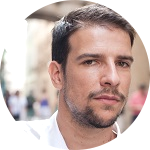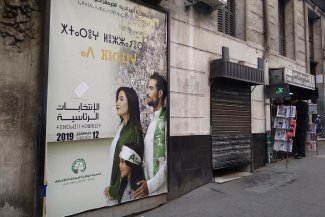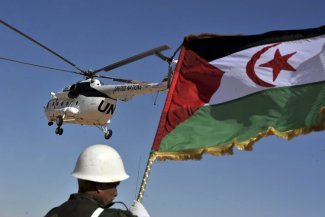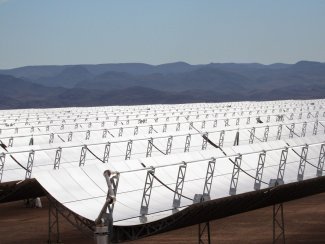Morocco currently has around a dozen journalists behind bars, many of them Sahrawis, according to estimates by Reporters Without Borders. News coming out of Western Sahara, like the Rif, is very restricted and Morocco does not hesitate to deport any foreign journalist trying to circumvent police controls to enter this territory disputed with the Polisario Front.
For decades, the Moroccan government has shown great skill in selling itself abroad. In a period of effervescence in the Arab world, and with the West fatigued by the jihadist threat, the Alawi kingdom has managed to project an image of modernity, moderation and stability. In other words, the ideal partner in North Africa. But the announcement by Belgian authorities that Morocco had allegedly bribed several members of the European Parliament to defend its interests in Brussels has led to increased scrutiny of human rights violations in Morocco, especially against civil society. And the resulting picture is not a flattering one.
On 19 January 2023, the European Parliament adopted the first resolution in 25 years criticising the fundamental rights and freedoms situation in Morocco. Among the various concerns expressed, the text refers to the repression in the northern region of Rif, traditionally marginalised by the state. Between 2016 and 2017, a peaceful protest movement, known as the Hirak (Arabic for ‘movement’), emerged to demand more social investment. After a few weeks of tolerance, the regime responded with force: hundreds of people were arrested, and the epicentre, the Riffian city of Al Hoceima, was completely taken over by the police. Even now, holding a demonstration in the Rif is impossible, and Hirak leaders, such as Nasser Zefzafi, are languishing in jail, with sentences of up to 20 years.
“The regime has been growing progressively tougher since 2013. The moment when everything started to change was following Al Sisi’s coup in Egypt. As the West allowed him to act with brutal repression, the [Moroccan] regime assumed that it would also be given carte blanche,” argues Maâti Monjib, a historian and journalist who is part of the National Committee for the Liberation of Prisoners of Conscience.
Monjib himself spent several months in prison in 2021 because of his writings critical of the Makhzen, the name given to the ‘deep state’ that governs the country, more powerful than the elected executive.
The harassment and silencing of dissident civil society has marked the end of a transition process that began in the death throes of the reign of Hassan II, who died in 1999. Initially, his son, King Mohammed VI, responded favourably to citizens’ demands for greater freedom, dismissed his father’s brutal interior minister, Driss Basri, and even launched a Transitional Justice process to recognise the victims of the ‘Years of Lead’. In 2011, the monarch attempted to weather the revolutionary winds of the so-called Arab Spring with a constitutional reform that, among other changes, granted greater powers to parliament. “These were cosmetic changes. Nothing has changed. Power remains in the palace,” says a Moroccan university professor who prefers to remain anonymous.
No room for critical press
“Now the whole world knows that my son is the victim of an injustice, and that he has not committed the crimes he is accused of,” proclaims Idriss Radi, father of journalist Omar Radi, who was sentenced in March 2022 to six years in prison for committing a sexual offence, which some human rights NGOs consider to be trumped-up charges by the regime. Idriss Radi feels vindicated by the resolution adopted by the European Parliament, which is calling for the release of imprisoned reporters in the North African country, and which specifically mentions the case of his 36-year-old son.
The resolution was a rare moment of satisfaction for the Radi family, who have been living a nightmare for the past 18 months, since the day Omar entered prison. The family, who live in Casablanca, complains that the reporter is being treated cruelly, describing it as an act of “revenge”. “In violation of Moroccan law, he is in 24-hour solitary confinement. He is not allowed to go for a walk in the courtyard or to talk to the other inmates. He is not allowed to communicate with the outside world or even to write or read books. He is only allowed to call his family twice a month, and the telephone is often suspiciously out of order,” says Idriss Radi, who also criticises the fact that the prison administration is not providing his son, who has a chronic digestive illness, with the food he needs, which has weakened his health.
Charges of endangering state security are linked to Omar’s publication of several investigative reports in which he uncovered the corruption of high-ranking people, often well connected to King Mohammed VI. The Clooney Foundation for Justice said in a report that the trial fell short of minimum international standards of justice, a view similar to that of organisations such as Amnesty International. However, although the International Federation of Journalists (IFJ) has called for his release on the grounds that an alternative sentence to imprisonment is possible, it does not assess his innocence or the fairness of the trial that convicted him. “We are not judges or lawyers. We only defend the innocence of journalists when they are charged with charges related to freedom of expression,” says IFJ general secretary Anthony Bellanger.
Morocco currently has around 10 journalists behind bars, many of them Sahrawis, according to estimates by Reporters Without Borders (RSF). News coming out of Western Sahara, like the Rif, is very restricted and Morocco does not hesitate to deport any foreign journalist trying to circumvent police controls to enter this territory disputed with the Polisario Front. But the three most prominent are Moroccan journalists, Taoufik Bouachrine, Suleiman Raissouni and Omar Radi, all of whom have been sentenced to long prison terms of between five and 15 years on sex offence charges.
“We have studied their cases in depth, and we have concluded that the sex offence charges have been fabricated to punish these reporters for their work as investigative journalists,” explains Edith Rodríguez, a RSF representative.
In the latest RSF World Press Freedom Index, Morocco ranked 135th out of 180 countries, placing it in the group where the situation for journalists is described as ‘difficult’.
According to Rodríguez, the regime uses such accusations to avoid damaging its international image while discrediting that of the dissidents. “It is a new strategy that makes life complicated for NGOs like ours and human rights organisations. Before, under Hassan II, journalists were imprisoned on charges directly related to freedom of expression,” she explains. But this is not the only strategy deployed to gag critical journalism. The security services or business interests close to the palace have been buying or creating media outlets for the sole purpose of launching smear campaigns against dissent, often utilising revelations of a sexual nature, a taboo in a conservative society such as Morocco. “These types of media have written all kinds of falsehoods about me: that I am an adulterer, homosexual, etc.,” says a resigned Monjib, who, at age 60, is considered a doyen of investigative journalism in the country.
Last summer, Human Rights Watch (HRW) published a damning report accusing the Moroccan authorities of having built a sophisticated legal and media apparatus to neutralise opposition. The report includes the testimony of Afaf Bernani, a journalist who had to go into exile after refusing to cooperate in a bogus trial against her boss, who had been accused of several sex offences. “The police questioned me to ask me if I had been sexually harassed by Taoufik Bouachrine. I told them I had not. Then I discovered the police report had falsified my testimony,” Bernani told HRW.
Bouachrine was the editor of Akhbar al-Yaoum , the last independent newspaper with a print edition, which closed its doors in 2021. His predecessor, Suleiman Raissouni, is also behind bars, for having sexually assaulted a man, charges he denies. Several people consulted for this article agreed that while there are still some truly independent online media outlets in Morocco, such as Lakome, in all other areas, such as television, radio and the printed press, they have disappeared.
Harassment of human rights defenders
Human rights defenders are also targeted by the authorities, especially the Moroccan Association of Human Rights (AMDH), which is undoubtedly the most combative. Khadija Riady, former president of the organisation, speaks of a veritable battery of obstacles and hostile actions on the part of the authorities. “Although the law on associations is quite liberal, in many cases it is not applied. The state does not issue a receipt confirming the creation of an NGO if it considers it to be a nuisance. This makes it difficult for them to operate because, for example, they cannot open a bank account,” says Riady. Up to 80 per cent of AMDH’s 90 or so regional offices are currently without a registration receipt. Moreover, in a clear violation of the right of association enshrined in the Moroccan constitution, the authorities block the NGO’s access to meeting rooms in public or private spaces, exerting heavy pressure on those in charge of them or even sending the police to close the premises on the day the event is scheduled to take place.
“Another form of pressure is to cut off our funding sources. Our international partners have all stopped cooperating with us. They tell us: ‘The authorities have warned us that if we want to continue working in the country, we have to stop cooperating with you,’” says Riady. The harassment they face includes measures such as defamation by pro-government media outlets, accusations that they are foreign agents and morally depraved, or espionage, using Pegasus spyware. In its resolution, the European Parliament censured the widespread use of the invasive Pegasus programme in Morocco to spy on dissidents. According to an Amnesty International investigation, Rabat has been using the spyware against its opponents since at least 2017, and its first victim was Maâti Monjib.
When these pressures fail to deter activists, the last resort is imprisonment. Over the last two years, at least a dozen human rights defenders have been imprisoned, according to AMDH estimates. Two prominent human rights defenders, both from AMDH, are currently imprisoned: Rida Benotmane, sentenced to three years in prison on charges such as ‘insulting public officials while performing their duties’ or ‘distributing false news’, and Saida al Alami, sentenced to two years on similar charges. In both cases, their ‘crime’ was criticising the authorities through social media posts.
According to Riady, aside from the usual red lines, such as criticism of the king or Islam, a new one has been added in recent years: criticism of the security services, especially the dreaded domestic intelligence service, the DST.
“Then, at local level, another red line is attacking the privileges of local authorities, such as exposing their shenanigans, revealing that they are breaking the law. In the south-west, five people were imprisoned just for protesting against the pollution of a silver mine, whose shareholders include the royal family,” says the rights defender. According to the National Committee for the Liberation of Prisoners of Conscience, at least 60 activists are known to be behind bars but there could be many more, as the repression in more rural and remote regions often goes unreported.
Monjib agrees that denouncing the fact that Morocco is turning into a “police state”, and revealing how it works, is a red line for the regime. For him, this was one of the main reasons behind his prison sentence, which led him to a hunger strike that brought him close to death. “The DST services are everywhere, they have infiltrated the police, the media, the courts. In Morocco, there is a hidden political police, with a parallel structure,” says the academic. This apparatus is responsible, for example, for recording videos of a sexual nature that are used to blackmail or defame dissidents. “In some cases, these videos have a very high image quality, they look like pornographic productions. It is a very professional job,” adds Monjib.
AMDH has observed a loss of independence of the judiciary, which it associates with the construction of the “police state”. “Traditionally, the administrative courts have been quite independent, and in many cases, such as freedom of association cases, they have ruled in our favour, but the state has then refused to implement their decisions,” regrets Riady. In her view, things are changing because the regime has taken absolute control of the Court of Cassation in administrative proceedings, and its verdicts always now go against the interests of this NGO, and its interpretations are “very biased”.
Finally, one of the strategies used to discredit critics is to create parallel structures or co-opt existing structures dedicated, in theory, to the defence of human rights or press freedom. These rarely criticise the state, and often target dissidents or the international institutions that support them. The Moroccan National Press Committee, for example, has censured the European Parliament’s resolution as “having nothing to do with human rights but being, rather, a desperate attempt to put pressure on Morocco to serve a geostrategic agenda favourable to European parties forever nostalgic for hegemony and a defunct past”. This strategy is not, however, new to Morocco, but part of a long tradition, as seen in areas such as the trade union movement. “The state has always tried to create yellow unions, or to co-opt the leaders of independent ones,” warns Mohamed Hakech, a veteran trade unionist who led the National Federation of Agricultural Sector Unions.
The struggle for freedom in Morocco is a long-drawn-out battle.













